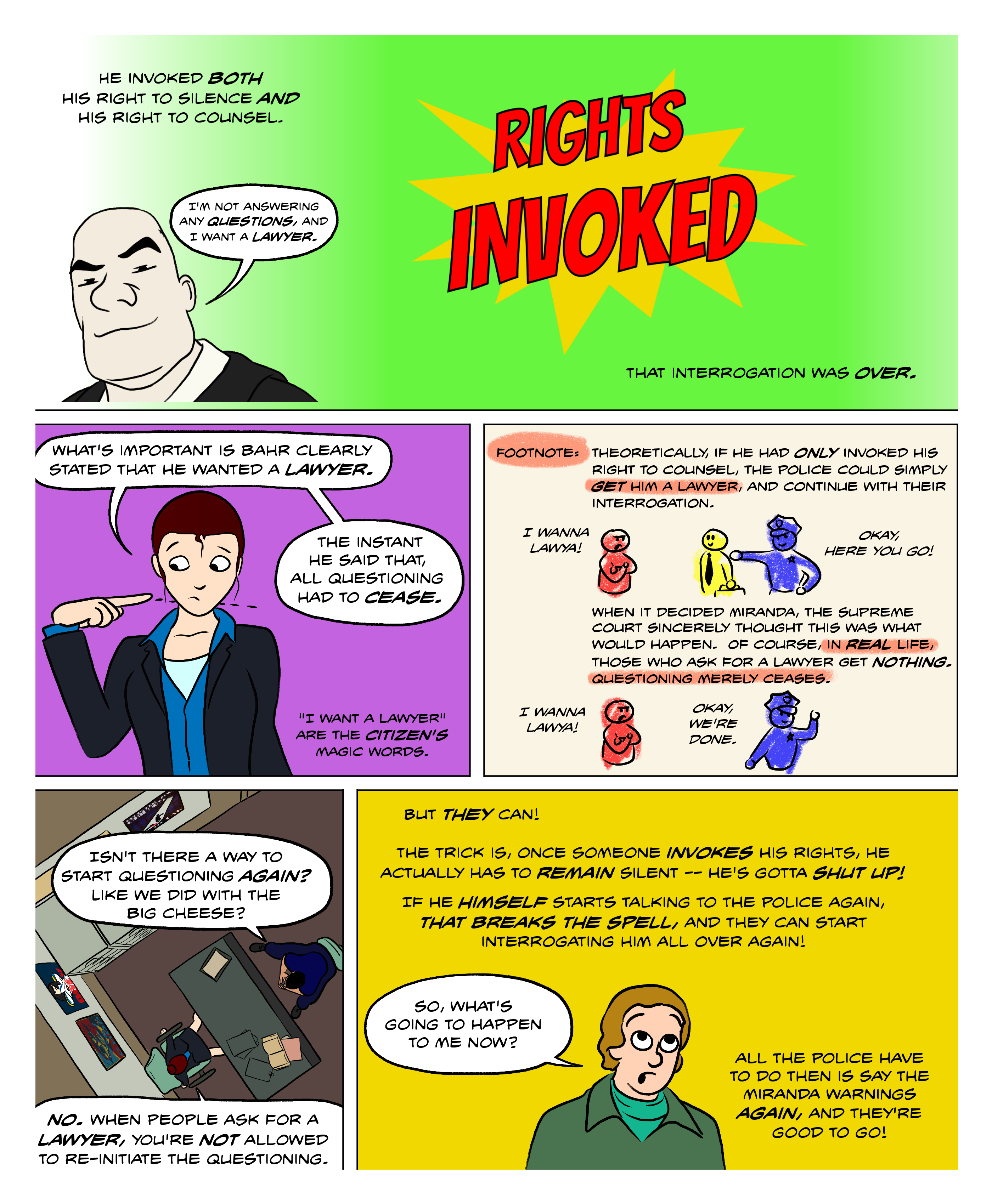|
This is a purely educational website. Nothing here is legal advice or creates or implies an attorney-client relationship. If you have a specific legal issue, PLEASE talk to a lawyer who practices where you live—laws vary from place to place, and how they're applied varies from courthouse to courthouse. Your local county bar association can probably refer someone who handles matters like yours.
By using this site, you agree that you are awesome. Use of this site also constitutes acceptance of its Terms of Service and Privacy Policies, which are known to medical science as a cure for insomnia.
It's best to keep all discussions in the comments. But if you really need to reach Nathan privately, go ahead and email him at n.e.burney@gmail.com. He won't mind.
THE ILLUSTRATED GUIDE TO LAW and the PEEKING JUSTICE logo are pretty damn cool trademarks and should probably be registered one of these days.
© Nathaniel Burney. All rights reserved, though they really open up once you get to know them.
|
|






So theoretically the police could give a suspect the Miranda warnings. The suspect could invoke their right to consul. Then the police could give the Miranda warnings again. So the cycle could just continue indefinitely, or until one of the parties starves to death?
Don’t they start talking again first?
My understanding (based solely on the comic) is that the suspect needs to initiate the renewed questioning. If the suspect starts talking without getting their lawyer, they’re implying that they’re fine not having one after all; the cops can confirm that by using Miranda again.
Once you invoke the right to counsel, THEY cannot do anything to get you to talk. If you continue to remain silent, that’s that.
But if you start talking again on your own, then you’ve UN-invoked your rights, and everything starts over.
But in this case, because an overzealous officer made provocative statements (interrogation!), Bahr’s response to those statements doesn’t un-invoke his rights? (And in any event, the officer didn’t re-Mirandize him, so…)
A lot of people are getting in trouble for this, aren’t they?
Even if you just ask THEM a question? Like “What happens now?”
So you’re not even allowed to ask unrelated things like “what’s going to happen to me now?” You’re stuck in custody without knowing for how long, and you just have to stay silent the whole time? That sounds unbearable.
If you ask the question, and they respond by reading you your rights again…it’s started over and you can presumably ask for your lawyer again, stopping it again.
Isn’t that kind of the point? You have the right to remain silent, so they throw you in a cell until you decide you’d rather talk?
So… if they don’t feed, water, or potty you, and you ask for one or more of those, the spell is broken?
They still have to re-mirandize you to break the spell.
That’s not going to count. Nor will answering basic “pedigree” questioning so they can process your paperwork (name, date of birth, etc.).
To break the spell, you have to be talking about your case — not just the act they’re accusing you of, but even something as vague as asking what’s going to happen next.
All the court has to do is find that you expressed a general willingness to discuss your case, and it’s going to say the police were allowed to start over again.
Ok, stupid question: if things aren’t going the way the Supreme Court intended, why didn’t the Supreme Court do something about it??
Good question.
The cynical answer is that this is in fact just how they want it — maximizing the chances for self-incriminating statements to be used at trial, to maximize the chances of convicting the guilty.
The slightly less cynical answer is that the Court hasn’t really understood its own jurisprudence here. The Burger and Rehnquist courts actually believed Miranda was undermining law enforcement, and so allowed its protections to be chipped away and eroded while refusing to strengthen its defects. Meanwhile, the original focus on having lawyers present at interrogation was completely forgotten, because it never happens in real life.
Anyone else out there have a suggestion that’s not quite so cynical?
Are there any other possible interpretations that are less cynical? As it stands, the standard Miranda warning is an outright lie. There’s really nothing else to call it when they say “You have the right to remain silent” and then bully you into speaking, or worse, “You have the right to a lawyer”, and then refuse to give you one.